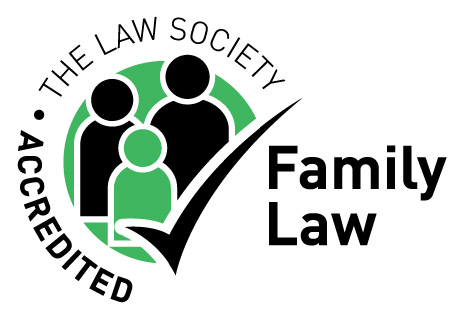Divorce Lawyers Enfield, Finchley, North London and Hertfordshire
Our aim is to minimise the pain and costs of your marriage breakdown.
This can be the most traumatic time of your life and our expert lawyers will deal with your case in a sensitive and sympathetic manner and will aim to progress it at a pace that you are comfortable with.
Our Family Law Team is led by specialist family law solicitor Vijaya Sumputh, a formidable force with excellent family law negotiation and litigation skills gained over 20 years of helping clients with family law and divorce across England and Wales. A member of Resolution and an award-winning divorce lawyer based in London, she and our other family lawyers are wholeheartedly committed to getting the best results for our clients whilst preserving vital family relationships.
Call our divorce lawyers today on 0208 363 4444 or complete our online contact form and we will be in touch to discuss your matter further.



Whether you have a formal DIVORCE through the courts, or a private DEED OF SEPARATION you will need some advice to ensure you are protected appropriately throughout.
Our family law team is experienced in dealing with financial cases involving company assets, foreign property, and Pensions. We can use our contacts with Accountants, Pension Actuaries and Financial Advisers if your position is complex to ensure you have the best options available to you and your particular needs are met.
Our promise to you is to listen sympathetically to your concerns, provide guidance when needed and to support you all the way through your divorce or separation.
Contact our Divorce Lawyers in Enfield, Finchley, North London and Hertfordshire today
Call us today or complete our online contact form and one of our divorce lawyers in our team will be in touch to discuss your matter further.
Divorce FAQs
All divorces in this country are obtained by proving that your marriage has “irretrievably broken down”.
The Divorce Dissolution and Separation Act 2020 came into force on 6th April 2022 and created a new procedure enabling parties to divorce on a ‘no fault’ basis. It is therefore no longer a requirement to provide reasons for the breakdown in the marriage. However it is still necessary to provide a statement confirming the marriage has broken down irretrievably. Under the new procedure, you can either issue the divorce application yourself as a sole applicant or the application can be issued on a joint basis with one party named as ‘applicant 1’ and the other as ‘applicant 2’.
Further conditions on divorce are that you must have been married for at least a year before you start the divorce proceedings and one of you must have been living in the UK for the last twelve months. It does not matter if you were married in another country. If neither of you have lived in the UK for the last 12 months, contact us for more specialist advice on jurisdiction as it still may be possible for an English court to deal with your divorce.
No, it is not necessary to obtain the assistance of a solicitor but it can definitely help. During the divorce process, under a sole application the respondent will be required to respond to the application. If any of the paperwork is completed incorrectly, this can cause delay and sometimes even increase the court fees payable. We can ensure all the papers are in order for you so that the process is as quick and simple as possible.
A solicitor will also give you a clear understanding of what you might expect as a financial settlement ie how to divide the assets from the marriage. You may not be aware of how the courts decide such things and the early advice of a solicitor will help you to plan for a realistic and fair settlement. It is important to try and negotiate to settle the financial issues amicably. A solicitor will assist you in doing this. This is important as if the court decides you have acted unreasonably at any stage, they can require you to pay some of your spouse’s legal costs.
Arrangements for your children are not automatically dealt with when you apply for divorce. The Court will only involve itself in your arrangements for the children if you or your spouse make a formal court application for this to be dealt with. We would always encourage you to reach an amicable agreement with your spouse on children issues wherever possible. However, we can take emergency action to safeguard your position if you feel the children are ever at risk.
There will be a court fee payable which is currently £593. If a party is on a low income and only has limited savings, it may be possible to ask the court for a reduction of the fee. If you choose to instruct a solicitor to formally represent you in relation to the divorce proceedings there will also be solicitor’s costs involved. The services are usually charged on a time spent basis and the overall cost will depend on the circumstances of each case. Our solicitors here will be able to provide you with a fee estimate once further details have been taken about your individual case.
Resolving any issues regarding the arrangements for the children and the finances are separate services because they are more complex and unique to your personal circumstances. These services again are usually chargeable on a time basis – depending on how long it takes to bring matters to a conclusion. If you cannot reach agreement about these issues amicably, the cost will be greater. We encourage prompt and realistic negotiations aimed at reaching a positive agreement wherever possible.
Solicitors are obliged to give you information at regular intervals about how much the costs are. Public Funding (Legal Aid) is rarely available in family cases now and Curwens no longer operate a Public Funding franchise in any event.
Under the new procedure we estimate the time frame from start to finish will be around 8-12 months. An application may be made to the court for it to consider the making of a conditional order (previously known as the decree nisi) at any time after the period of 20 weeks from the date the application was issued. There will be a cooling off period of 6 weeks from the date of the conditional order (previously known as the decree nisi) before an application for a final order can be made. However the overall time taken may be longer, depending on the issues raised and whether there are any ongoing negotiations relating to the financial matters.
This very much depends on your family’s circumstances – e.g. how long you have been married, whether there are minor children, and what other assets and income you each have.
Generally speaking, all the assets (the house, cars, savings etc.) are considered “matrimonial assets” regardless of who bought them or whose name they are held in. Firstly, there needs to be full disclosure of all assets, along with any liabilities and details of income, pensions and businesses. Once you have exchanged this information we can assist you in trying to reach an amicable agreement over how to divide the assets between you and your spouse. If agreement cannot be reached, it may be necessary to ask the Court to help make a decision for you.
You would usually each retain those personal belongings you bought or which were given to you. Under normal circumstances any such difficulties are resolved quickly with or without the assistance of your solicitor.
This will depend on its value, what other assets there are, and how long the marriage lasted. Pension values always have to be disclosed, but if you are both young, there are no children and the marriage was very short, you are likely to retain your entire pension fund. However, the court has the power to make a Pension Sharing Order if it seems fair and reasonable in all the circumstances– this means a percentage of your pension fund is transferred into your spouse’s name at the time of the divorce.
No. Your legal name remains unaffected by the divorce proceedings, but if you want to revert to your maiden name this is possible using your birth certificate and the final order ending the marriage (previously known as decree Aabsolute). If you want to change to any other name, or revert to your maiden name without any divorce, you need a formal Change of Name Deed which we can draw up for you.
Separation Agreement FAQs
It is a contract between two parties usually entered into when their relationship comes to an end, and is intended to be legally binding on them both.
You should consider the level of conflict that could arise, for example about trying to agree a way forward on issues such as the family home, maintenance, pensions and any children matters. You need to be confident that you can resolve any contentious issues amicably. If the above matters have all been settled or terms agreed for inclusion in your Separation Agreement then you should have little difficulty in finalising the document with the assistance of a solicitor.
No – there is usually a specific reason why the parties do not want to apply for a formal divorce…and that is why they enter into a Separation Agreement, or apply to the court for a Judicial Separation.
A wife can continue to use her married name after a Separation Agreement, and it does not automatically change on divorce either.
Yes, a specialist family solicitor can provide you with advice and help with negotiations. You would usually be encouraged to consider trying to use Mediation or the Collaborative Process too. If you cannot agree the terms amicably – even with the assistance of a third party, then you are going to have to consider involving the court. This would mean one of you applying for a Divorce or Judicial Separation.
No. You are still legally married as a Separation Agreement does not dissolve the marriage. To remarry you must first obtain a final order (previously known as decree absolute) through divorce proceedings.
The Separation Agreement is a contract and therefore the terms are intended to be legally binding upon you and your spouse. However, the family court may be persuaded to vary the terms in the Separation Agreement if they do not appear to be fair and reasonable, the document is not properly executed, there is a change in circumstance for one party, or one party claims they were pressured into entering into the Agreement.
If your spouse breaches any term in a Separation Agreement, you would have to consider instructing a solicitor to try and put pressure on them to comply with the relevant term(s) and ultimately apply to the Court to enforce the term(s).




















